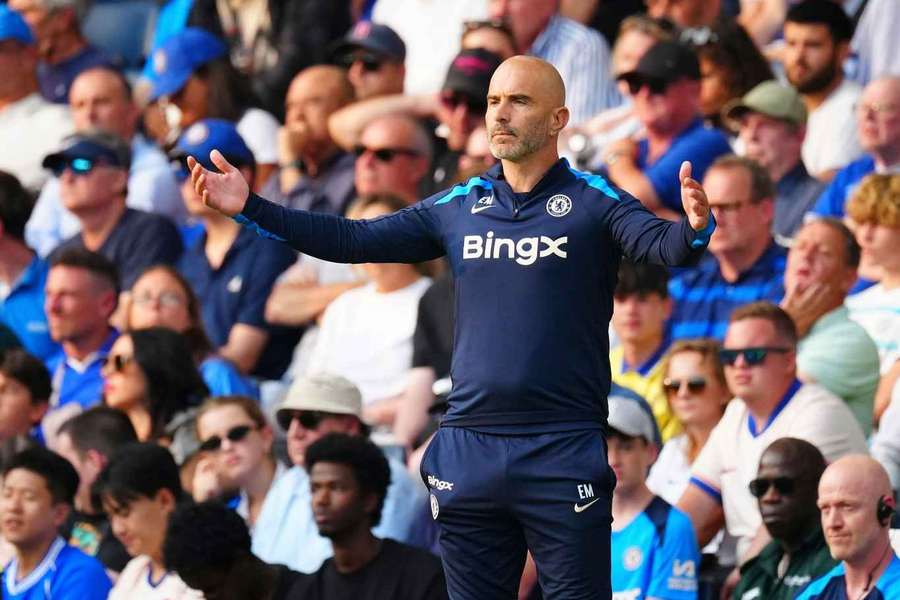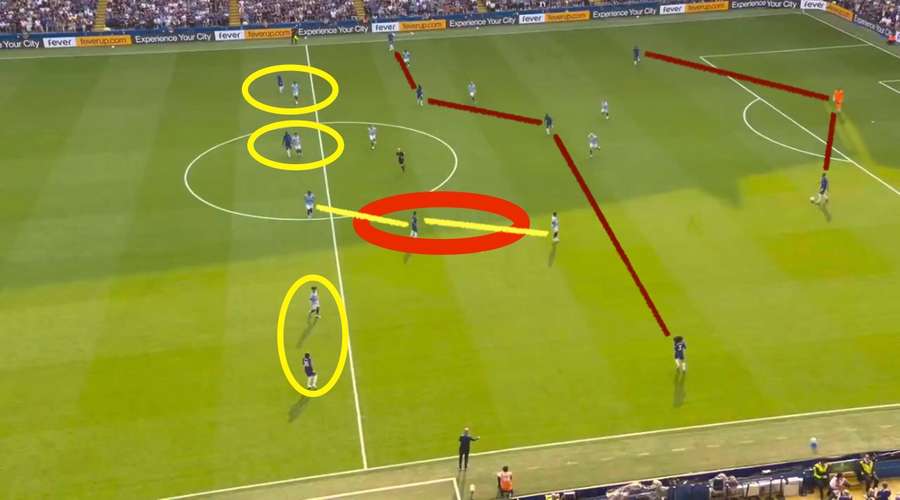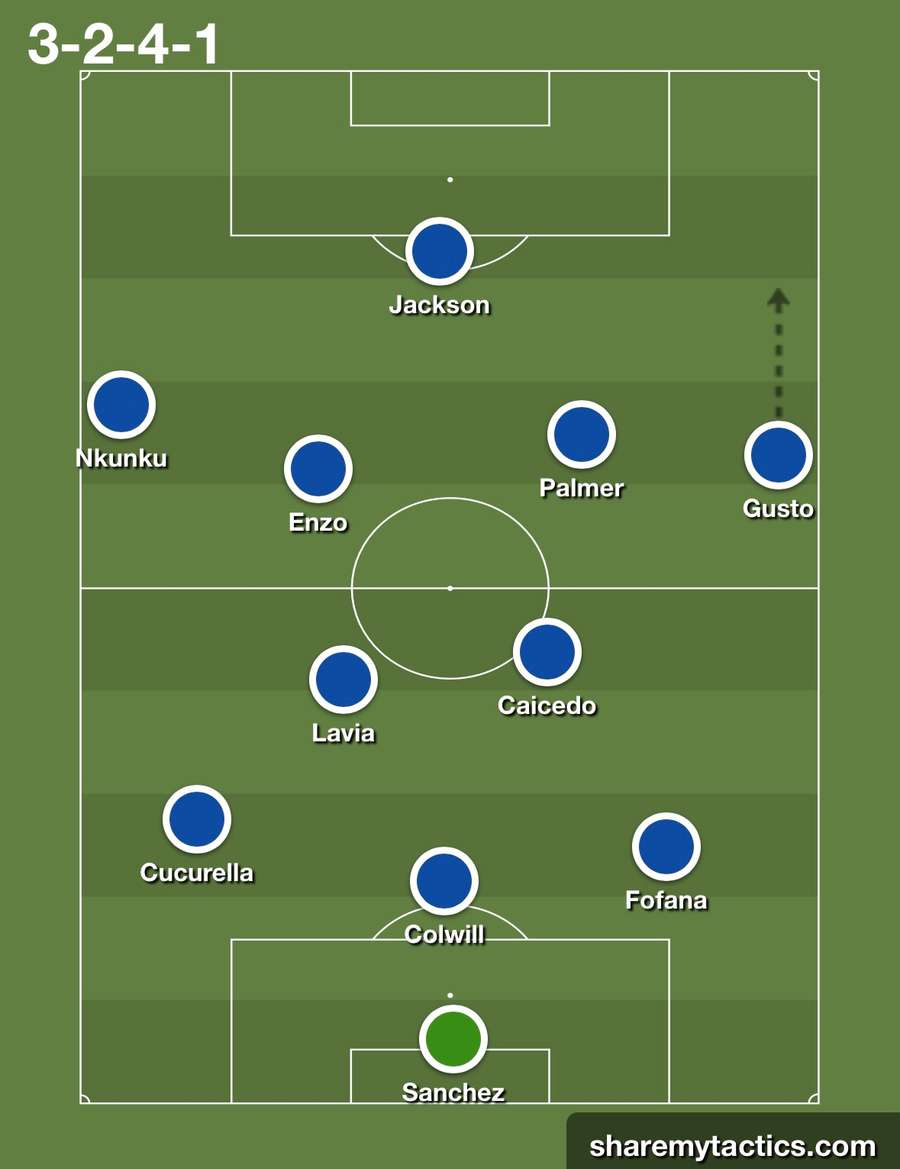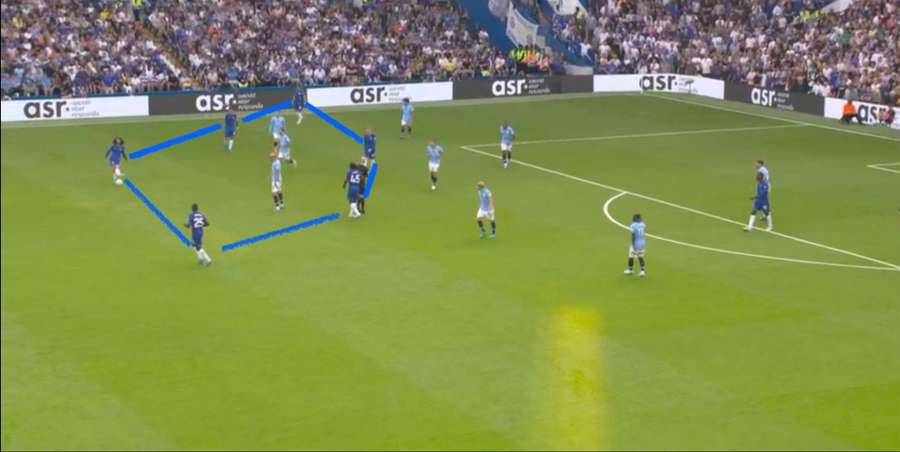The Regista: Enzo Maresca system offers potential for Chelsea in Manchester City defeat

And whilst Pep’s Manchester City side walked away with the victory, I do believe Maresca showed how his Chelsea side will take a step forward this season, challenging higher up the table.
CHELSEA BUILD-UP STRUCTURE

Chelsea built up in a 3-4-4 base structure in their first phase for this game, as a counter to City’s 4-1-4-1/ 4-4-2 press.
The base three was formed by Robert Sanchez (GK), and the two central defenders Levi Colwill (LCB) and Wesley Fofana (RCB) either side of him.
The next line of four was constructed with the two fullbacks providing low-depth width (Malo Gusto and Marc Cucurella) and the pivot of Romeo Lavia and Moises Caicedo in the middle of the park, operating at staggered heights.
Lastly, the front four would consist of Cole Palmer (RW), Christopher Nkunku (LW) and Nicolas Jackson (ST) all pinning the City backline and stretching the pitch. Enzo Fernandez who was operating as a No.10, would then find a position between the spare defender, and cover the shadow of their passively positioned winger.
This would give the City defender a decision to make: either jump out of the backline to pressure and mark Fernandez, therefore leaving space in behind for the Chelsea attackers to exploit, or allow him to receive in space and turn which would let Chelsea find the spare man and progress play.

In a more advanced build-up (attacking phase) Gusto would provide height and width on that right side, allowing Cole Palmer to drift inside and operate in the right half-space, where he naturally does his best work.
Now Chelsea’s main issues came from a lack of profiles in certain positions, and therefore an imbalance in the team.
Fernandez playing in the number 10 role, and Nkunku out on the left were the main instances of this, as Enzo was often receiving the ball with his back to play, as opposed to facing play where he can have more of an effect on the game.
And in Nkunku’s case, having BOTH him and Palmer out wide, leaves the team without a real 1v1 threat, both players preferring to operate infield, rather than as a touchline winger.
The introduction of Pedro Neto added that 1v1 wide threat and carrier, actually creating a good chance from a cross after beating his man out wide.
CHELSEA PRESSING SCHEME & BUILD-UP CONTROL

Another thing Chelsea did very well, was sustain pressure in the opposition half, building through the field as a team, and forming a good shape to pin City inside their own half.
The image above shows the close proximity and “counter-pressing net” formed close to the ball, ready for the players to converge and regain possession with intensity if the ball changes hands.
Chelsea had a 53.1% territory metric, to Manchester City’s 46.9%. This shows Chelsea managed to pin City in their own half more often, controlling a larger portion of the pitch, and completing more passes in the attacking third.
In comparison, last season Chelsea had a 34.6% territory metric against City, 45.9% against Arsenal, and 37.4% against Liverpool.
CONCLUSION
In conclusion, Chelsea actually had a very good foothold on this game, the difference was in both boxes (as Maresca said himself).
The Blues created more xG, only took one fewer shot (with the same amount from inside the box), and as mentioned, had a better territory metric for the game, showing positive signs from Maresca’s side, controlling large portions of the game against the Premier League champions.
Maresca could be onto something good here, and whilst it wasn’t perfect, the foundation looks strong, and Chelsea fans should be optimistic for the weeks ahead.



